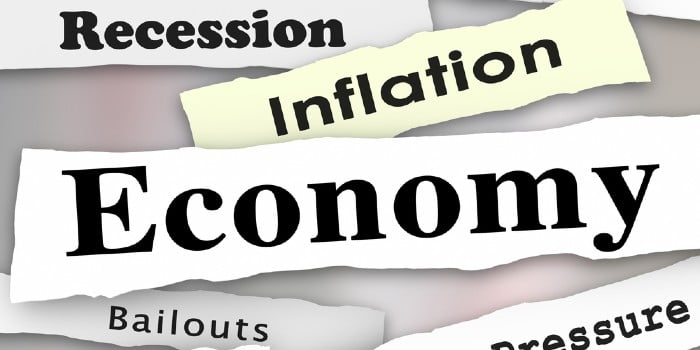Soaring prices will cause some members at the Bank of England to press for increased interest rates to control inflation, while others will state that now is not the time to do so.
When the Bank’s Monetary Policy Committee (MPC) meets this week, there will be contrasting warning signs to consider as economic growth loses momentum and inflation continues to rise. To make matters worse, the recovery from last winter’s lockdown is stalling, due to the most severe disruption to company supply chains since the 1970s.
Businesses are struggling to recruit staff to maintain turnover, the costs of raw materials have soared and energy prices have hit record highs. After the consumer price index (CPI) measure of annual inflation hit a record peak of 3.2pc in August, these problems threaten to feed into even higher inflation this autumn.
At the same time, predictions of a post-lockdown consumer spending boom, made earlier this year, now appear over-optimistic, as the coronavirus Delta variant drives up infection rates and a very tough winter looks increasingly likely. Retail sales fell in August, a gas shortage is hitting UK food, and mining and iron ore stocks have slumped.
Some economists fear a recurrence of ‘stagflation’ similar to the situation in the 1970s, the last time the global economy suffered sluggish growth rates along with higher inflationary pressure.
MPC expected to take ‘cautious’ position
So now the Bank’s policymakers face a dilemma: does the threat of higher inflation warrant an increase in interest rates, or would an increase in the cost of borrowing further damage the fragile economic recovery from Covid-19?
Threadneedle Street so far has erred on the side of caution, maintaining that the post-lockdown inflationary burst will prove fleeting. And with good reason. The UK’s current soaring inflation is the result of recovery from an unprecedented crash in economic activity in 2020. Rishi Sunak’s ‘eat out to help out’ scheme greatly reduced the cost of restaurant meals in August 2020, so that a return to relative normality in 2021 was responsible for an artificially high inflation rate.
City economists expect the Bank to take a cautious position this week, although eyes will be peeled for any signals from the MPC on the future timing and pace of restrictive measures.
In a busy week for global central banks, financial market investors will likewise keep an eye on the US Federal Reserve when its rate-setters meet on Wednesday.
Triple whammy puts pressure on family budgets
The Bank’s governor, Andrew Bailey, mentioned last week that at the central bank’s last meeting in August, four members of the MPC believed the conditions had been met to prepare the ground for interest-rate increases.
Since then, two new individuals have joined the nine-member rate-setting panel: Huw Pill, the former Goldman Sachs economist, who replaced Andy Haldane as the Bank’s chief economist this month; and Catherine Mann, former global chief economist at Citibank.
Analysts consider it likely that the majority of the MPC will agree that conditions are right for raising interest rates, although action to increase borrowing costs is still unlikely until early next year at least.
With the end of furlough looming, as well as the largest ever overnight cut in social security – to universal credit – and an increase in national insurance, the UK’s economy is at a delicate stage. All these changes will undoubtedly put pressure on household finances.
More than a million jobs are still thought to be on furlough, despite falling unemployment and record job vacancies. Accordingly, economists believe the Bank will want to wait and see how the coming months pan out.
Furthermore, as the economy enters a rough patch, government needs to flesh out its flagship soundbite and show in the autumn budget how ‘levelling up’ will be achieved financially.






